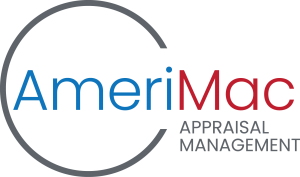
- 877-241-5144
- M-F: 8am to 8pm
Property appraisals are an essential tool for real estate investors. Appraisals determine the market value of rental properties using various valuation methods, and multiple factors influence the final appraisal value. By comprehending this process, investors can make informed decisions regarding their real estate investments and maximize their potential return on investment. Let’s delve into the intricacies of investment property appraisals to simplify this significant aspect of real estate investing.
Investment property appraisals determine the market value of real estate assets. These assessments consider various factors, such as rental income, property improvements, and comparable property sales, which influence the final valuation.
Appraisals provide crucial insights for both buyers and sellers. Understanding the property’s worth helps in making informed decisions regarding real estate investments. Additionally, appraisals are essential for lenders to evaluate the property’s value before approving a loan, ensuring a fair transaction.
Location, property size, condition, and recent sales of similar properties influence appraisal values. Proximity to amenities, school districts, and local market trends can all impact the appraisal. Property age, upgrades, and market demand also play significant roles. Additionally, considering the unique features and potential real estate income streams can further affect the final valuation.
Appraisers employ various techniques to assess the market value of investment properties. The sales comparison approach assesses the property’s value by comparing it to similar properties sold recently. The income approach, on the other hand, focuses on the property’s potential income, and is often used for rental properties. Lastly, the cost approach evaluates the property’s value by determining the cost of replacing it with a similar one, considering depreciation and improvements.
The sales comparison approach is a widely used method for appraising single-family rental properties. It involves comparing the subject property to recently sold comparable properties in the same area. The process begins by identifying 3-5 recent sales of properties with similar features and adjusting the comparable prices based on market data. Adjustments are made if a comparable property is superior or inferior to the subject property in certain aspects. The adjusted sales prices are then averaged to estimate the subject property’s market value.
The income approach is particularly relevant for rental properties like apartments or commercial buildings. It focuses on estimating the value of a property based on its potential rental income. This approach considers several factors, including gross rental income, operating expenses, net operating income (NOI), and the capitalization rate (cap rate). Gross rental income is the total annual income generated from rent and other sources. Operating expenses include property maintenance, taxes, insurance, and utilities. The NOI is calculated by deducting operating expenses from the gross rental income. The cap rate is used to estimate the return on an investment property and is determined by the market. The NOI is then divided by the cap rate to estimate the value of the property. For example, if the gross rental income is $50,000 per year and the operating expenses are $15,000 per year, resulting in an NOI of $35,000, and the cap rate is 6%, the property’s estimated value would be approximately $583,333.
The cost approach is commonly used for unique or new rental properties where comparable sales data is limited. The approach considers the value of the land, the current cost of construction, and depreciation. The depreciated building cost is calculated by subtracting the depreciation from the construction cost. The total property value is then determined by adding the depreciated building cost to the land value. For example, if the land value is $60,000 and the construction cost is $180,000 with a depreciation of $30,000, the depreciated building cost would be $150,000. Using the cost approach, the value of the rental property would be $150,000 + $60,000 = $210,000.
Gathering vital documents such as property records, recent renovations, and maintenance histories is essential to preparing for your investment property appraisal. Additionally, consider enhancements like landscaping and upgrades that could positively impact the appraisal value.
Before your investment property is appraised, have the essential documents ready. Gather recent property tax bills, homeowners’ insurance information, property title and deed, any lease agreements, and a list of recent improvements. Preparing these documents will streamline the process and provide the appraiser with the necessary information for an accurate evaluation. Missing documents could lead to delays or an incomplete appraisal report. Be organized to make the appraisal process efficient and effective.
Minor improvements, such as cosmetic upgrades, can positively impact your investment property’s appraisal value by enhancing its overall aesthetics. Renovations like modernizing kitchens and bathrooms, updating flooring, or improving landscaping contribute to a higher appraisal value. On the contrary, neglecting maintenance issues or having outdated features may lower the property’s appraisal value. It’s crucial to consider these improvements beforehand.
Appraisals play a crucial role in shaping investment strategies for real estate investors. By accurately assessing the value of a rental property, appraisals provide investors with essential information to make informed decisions. One significant impact of appraisals is on financing options. Lenders rely on appraised values to evaluate the collateral value for mortgage financing. A higher appraisal value can result in more favorable financing terms, including lower interest rates and higher loan amounts. Appraisals also affect investment strategies by helping investors gauge the potential for property value appreciation. Understanding the current market value of a property allows investors to assess its growth potential over time and make decisions about buying, selling, or holding onto the property.
Additionally, appraisals have tax implications for investors. Property tax obligations are often calculated based on appraised values, and changes in the value can impact tax assessments. Furthermore, appraisals can provide valuable information for investors to strategize and optimize their tax planning strategies based on property valuations.
AmeriMac’s process ensures appraisals are made quickly and conveniently for both borrowers and lenders. Each appraisal is subject to a 63-point quality assurance check to ensure accuracy and compliance. Log in through AmeriMac’s Value Link portal to order your appraisal today.

The fully staffed customer service department at Amerimac Appraisal Management is available Monday through Friday, 8 a.m. EST to 8 p.m. EST.
SIGNUP FOR OUR MONTHLY NEWSLETTER:
Client Testimonials
© Amerimac 2025. Privacy Policy. Website by WMx Digital.